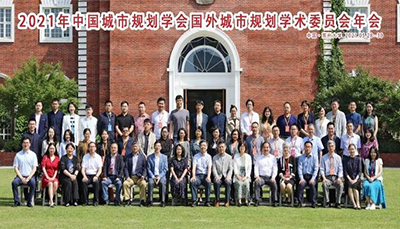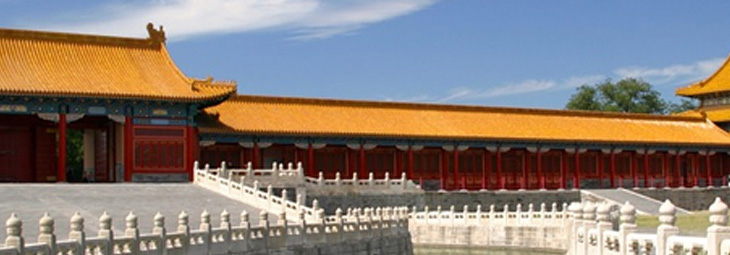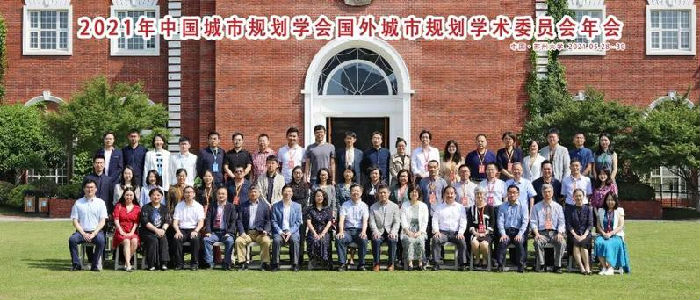



Views Collection (Part 2)
5.Shen Lei:Practice and Prospect of Eco-City Construction in China
Professor-Level Senior Engineer, Chief Engineer of the Chinese Society for Urban Studies; Executive Vice-President of the China Eco-City Academy; Chief City Planner of Jiaxing
Given the process and background of eco-city development in China and foreign countries, Shen Lei points out that the 14th Five-Year Plan period is a critical period for China to achieve carbon peaking. From the perspective of end-users of carbon emissions, about 80% are concentrated in cities, which makes the construction of eco-cities the only path for China’s sustainable development. Nowadays, low carbon has become the consensus of eco-city construction. On this basis, Shen Lei puts forward the methodology of China’s eco-city planning and construction: (1) identifying the natural ecological base;(2) reviewing the historical context of human settlements;(3) carrying out concentrated development of urban and rural clusters;(4) establishing a green transportation system;(5) achieving the green transition of infrastructure;(6) realizing the networkization of public service centers;(7) establishing a low-carbon city-industry system;(8) building green future-oriented communities;(9) keeping the operation and maintenance of the intelligent management and control system;(10) innovating the planning governance mechanism.
6.Li Zhigang: The Study on Urban Resilience: Theory, Practice, and Prospects
Dean, Professor of the School of Urban Design, Wuhan University; Councilor of the Urban Planning Society of China; Deputy Director of the Foreign Urban Planning Committee
Public emergencies have posed great risks both to the stable development of the national economy and society and to the safety of people’s lives and properties, accordingly, the operation of urban systems has faced great challenges. Relevant researches mainly focus on the measuring method, mechanism, and planning strategy of urban resilience from the perspective of evaluation, evolution, and construction. Studies on the evaluation of urban resilience, first, focus on the identification of characteristics and the construction of indicator systems of urban resilience. Indicator system research consists of three organizational logics: “bar - block - flow.” The “bar” logic divides the urban system into subsystems of facilities, economy, ecology, institutions, society, etc. The “block” logic evaluates the resilience characteristics from the perspective of the urban system as a whole. The “flow” logic evaluates the system performance in stages according to the response process. The complex adaptive system theory and regional economic research interpret the mechanism of action and evolutionary process of urban (economic) resilience. In recent years, different organizations have conducted a lot of explorations on resilient city construction in different regions, mostly following the action framework of “identification - analysis - assessment - diagnosis - action - adjustment.” Against the backdrop of both socio-economic transformation and the frequent occurrence of uncertain events, this paper provides several suggestions on construction of resilient cities in China: emphasizing the influence of social elements; stressing adaptive governance model and strengthening the exploration of the application of smart city technology.
7.Wang Chengkun: Preliminary Thinking on Systematic Planning and Construction of Resilient Cities
Director of the Research Center for Urban Infrastructure, Shenzhen Branch of China Academy of Urban Planning & Design
Extreme weather phenomena, such as droughts and rainstorms, will take place more frequently in the world in the future due to the increasing influence of human activities on global warming. Resilient city construction thus becomes an inevitable choice to deal with the impacts of global climate change and the increased non-traditional threats. At the beginning of the 21st century, some European and American cities with global influence, targeted at dealing with the impacts of global climate change, formulated their own construction strategies or plans for building resilient cities. In China, explorations on resilient city construction have also been conducted in some cities and regions, such as Chengdu, Shanghai, and Xiong’an New Area. In this context, Wang Chengkun puts forward systematic construction strategies of resilient cities, including expanding the scope of planning and construction, incorporating resilient city planning and construction into the territorial and spatial planning; improving the intelligence level of resilient city construction, and strengthening public participation. He also points out that the resilient city construction should focus on the coupling assessment of disaster risks, construction and management of resilient space, construction of urban infrastructure, construction and management of disaster prevention and emergency space, and construction of resilient communities.
Edited by Wang Miao with reference to
WeChat Public Account of CCPR
by <https://mp.weixin.qq.com/s/5rLsgEUPOeVAQDr8S7Lvdg>